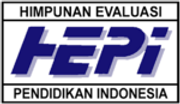Pembentukan Self Control dalam Perspektif Nilai Multikultural
Abstract
Self-control is a form of mental condition that affects the formation of a positive and productive behavior and determines the harmonious relationship to others. Recent deviant behavior, delinquency, promiscuity and the failure of a person’s life is strongly influenced by low self-control. The formation of self-control, at once, is influenced by cultural values that implied in parenting styles and learning outcomes of the behavior of those around him or her.
Self-control is manifested in the form of empathy, tolerance and discipline that all motivated by the cultural establishment. Every culture has certain values considered valuable or valued. Javanese culture that values harmony with the environment, more appreciative to the collectivity than the personal self-interest, will form a better self-control. Similarly, the Javanese self-image as a cool, sincere in acceptance, patient and courteous person would lead one to try to control him or herself.
Meanwhile, the Batak and Madurese society living in mountainous and rural areas with severe natural conditions requires a high spirit in order to conquer nature. Only tough, persistent and daring aggressive people can survive and succeed in life. Behaviors that are too impatient, calm and shy viewed as a personality in the weak tender, which cannot be used to subdue the ferocity of nature. This cultural background is the initial of why Batak and Madura people raise as more spontaneous, expressive, courageous and aggressive tended.Keywords
Full Text:
PDFReferences
Alwi, Hasan. 2001. Kamus Besar Bahasa Indonesia. Ed. III. Jakarta. Depdiknas RI dan Balai Pustaka.
Astro, Masuki M. 2006. Orang Madura Peramah yang Sering Dikonotasikan Negatif. (http://www.mamboteam.com) diakses 4 November 2006.
Bell, P.A., Greene, T.C., Fisher, J.D., and Baum, A. 1996. Enviromental Psy¬chology. Fourth Edition. Orlando : Harcourt Brace College Publishers.
Budiningsih, C.A. 2008. Pembelajaran Moral, Berpijak pada Karakteristik Siswa dan Budayanya. Jakarta: Rineka Cipta.
Corey, Gerald. 2005. Therapy and Practice of Counseling and Psychotherapy. Australia, Canada, Mexico, USA : Thomson Books/Cole.
Carter, Evan C. 2010. Religious Cognition and Duration of Maintained Grip. dalam http://etd.library.miami.edu/theses/available/etd-05012010-151819/
Cremes, A. 1995. Teori Perkembangan Kepercayaan, Karya-Karya Penting James W. Flower. Yogyakarta: Kanisius.
Endraswara, S. 2003. Budi Pekerti dalam Budaya Jawa. Yogyakarta: PT Hanindita Graha Widya.
Endraswati, Suwardi. 2010. Etika Hidup Orang Jawa. Cet I. Yogyakarta : Narasi.
Goleman, D. 1996. Emotional Intelligence. London: Bloomsbury Publishing PLC.
Hart, D., Atkins, R., & Matsuba, M. K. 2008. The Association of Neighborhood Poverty with Personality Change in Childhood. Journal of Personality and Social Psychology, 94(6), 1048-1061.
Hoffman, M.L. 1984. Empati, Social Cognition and Moral Action, dalam W. Kurtines dan J. Gerwita eds.: Moral Behavior and Development: Advances in Theory Research and Applications. New York: John Wiley and Sons.
Irmawati. 2004. Motivasi Berprestasi dan Pola Pengasuhan Suku Bangsa Batak di Desa Parparenan II Tapanuli Utara. Program Studi Psikologi Fak Kedokteran Universitas Sumatra Utara.
Jatman, D. 1997. Psikologi Jawa. Yogyakarta: Bentang.
Koentjaraningrat. 1984. Kebudayaan Jawa. Jakarta: Balai Pustaka.
Koeswara, E. 1988. Agresi Manusia. Bandung: PT Eresco.
Liau-bei Wu. 2004. A Study on the Relations among Self-Control, Peer Relation and Juvenile Deviant Behaviors.
Logue.A.W. 1995. Self Control. Waiting until Tomorrow for What You Want Today. Englewood Cliffs, New Jersey: Practice Hall.
Pangaribuan, T. 1998. Kajian Konsep Empati dalam Konseling. Tesis tidak dipublikasikan. PPS IKIP Malang.
Suseno, F. M. 2001. Etika Jawa: Sebuah Analisa Falsafi tentang Kebijaksana¬an Hidup Jawa. Jakarta: PT Gramedia Pustaka Utama.
Walter, Kristen H. 2010. Self-Control and Executive Function in Posttraumatic Stress Disorder. http://etd.ohiolink.edu/view.cgi?acc_num=kent1276474763.
Wiyata, A. Latief. 2003. Madura yang Patuh?; Kajian Antropologi Mengenai Budaya Madura. Jakarta: CERIC-FISIP UI.
________. 2005. Model Rekonsiliasi Orang Madura. (http://www.fisip.ui. edu/ceric) diakses 16 Agustus 2006.
________. 1995 . Carok: Konflik kekerasan dan Harga Diri Orang Madura. Yogyakarta: Lkis.
http://www.compas.ox.ac.uk/?id=165. Tolerance and Multiculturalism: a Study of the Relationship between Tolerance, Diversity and Transnationalism.
Refbacks
- There are currently no refbacks.
Copyright (c) 2017 Lilik Sriyanti

This work is licensed under a Creative Commons Attribution 4.0 International License.

This work is licensed under a Creative Commons Attribution 4.0 International License.
Program Studi Pendidikan Guru Madrasah Ibtidaiyah (PGMI)
Universitas Islam Negeri (UIN) Salatiga, Indonesia
Jl. Lingkar Salatiga Km. 2 Pulutan, Sidorejo, Kota Salatiga, Jawa Tengah 50716,
Telp. (0298) 323706 – Fax. (0298) 323433
Technical Support: jurnalmudarrisa@iainsalatiga.ac.id
P-ISSN: 2085-2061
E-ISSN: 2541-3457



